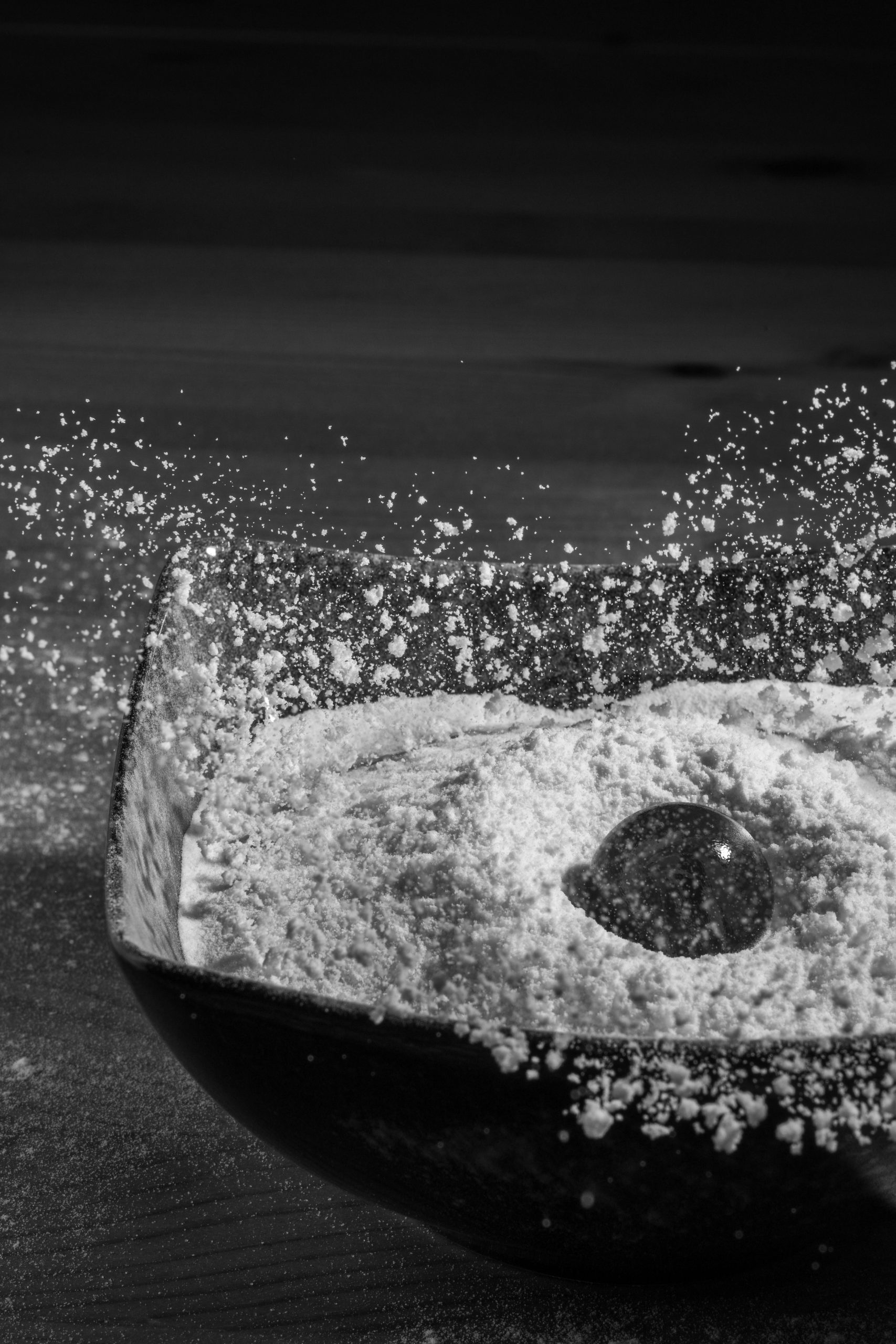Bentonite

Clearwater is Ireland’s leading supplier for Bentonite and have stock in our Dublin, Cork and Shannon Warehouse Locations for next day deliveries.
The main uses of Bentonite are for drilling mud, binder (e.g. foundry-sand bond, iron ore pelletizer), purifier, absorbent, and as a groundwater barrier.
Bentonite is environmentally safe and does not affect the water, livestock, or wildlife. It has many uses such as for:
Bentonite for Sealing Ponds
- Drilling Mud
- Binder
- Purification
- Absorbent
- Groundwater Barrier
- Medical
- Bentonite Slurry Walls for Construction
Application Rates
We get many questions about the proper application rate for bentonite clay. The answer always is the same, “It depends”. The bentonite clay application rate depends on the soil type and local soil conditions as well as the level of compaction that can be achieved in the pond bottom. In some cases, when the pond bottom simply can not be dried due to springs and groundwater inflow, the application rate must be significantly higher to achieve pond sealing. Average bentonite application rates range between 25kg per square meter and 35kg per square meter. This means that the total amount of bentonite needed to seal most pond bottoms is measured per tonne rather than in kilograms.
Application
BENTONITE FOR SEALING PONDS
Sodium Bentonite clay swells up to eighteen times its dry size when it becomes wet. Expanded bentonite forms an impermeable gel seal which makes an excellent pond sealant. Bentonite is environmentally safe and does not affect the water, livestock, or wildlife. When properly applied, it will not harm fish. For these qualities, bentonite also makes an excellent liner for new pond construction.
When sealing a leaking pond to prevent water loss through seepage, Bentonite can be applied directly to the soil in the pond bottom or it can be sprinkled on the surface of the water and allowed to settle to the bottom. There are three basic methods: the blanket method, the mixed blanket method and the sprinkle method. Bentonite is easily applied. In the case of small ponds, it can be applied with simple hand tools and for larger ponds, with ordinary farm equipment.
DRILLING MUD
Bentonite is used in drilling fluids to lubricate and cool the cutting tools, to remove cuttings, and to help prevent blowouts. Much of bentonite’s usefulness in the drilling and geotechnical engineering industry comes from its unique rheological properties. Relatively small quantities of bentonite suspended in water form a viscous, shear thinning material. Most often, bentonite suspensions are also thixotropic, although rare cases of rheopectic behavior have also been reported. At high enough concentrations (~60 grams of bentonite per litre of suspension), bentonite suspensions begin to take on the characteristics of a gel (a fluid with a minimum yield strength required to make it move). For these reasons it is a common component of drilling mud used to curtail drilling fluid invasion by its propensity for aiding in the formation of mud cake.
BINDER
Bentonite has been widely used as a foundry-sand bond in iron and steel foundries. Sodium bentonite is most commonly used for large castings that use dry molds, while calcium bentonite is more commonly used for smaller castings that use “green” or wet molds. Bentonite is also used as a binding agent in the manufacture of iron ore (taconite) pellets as used in the steelmaking industry. Bentonite, in small percentages, is used as an ingredient in commercially designed clay bodies and ceramic glazes. Bentonite clay is also used in pyrotechnics to make end plugs and rocket engine nozzles. The ionic surface of bentonite has a useful property in making a sticky coating on sand grains. When a small proportion of finely ground bentonite clay is added to hard sand and wetted, the clay binds the sand particles into a mouldable aggregate known as green sand used for making molds in sand casting. Some river deltas naturally deposit just such a blend of clay silt and sand, creating a natural source of excellent moulding sand that was critical to ancient metalworking technology. Modern chemical processes to modify the ionic surface of bentonite greatly intensify this stickiness, resulting in remarkably dough-like yet strong casting sand mixes that stand up to molten metal temperatures. The self-stickiness of bentonite allows high-pressure ramming or pressing of the clay in moulds to produce hard refractory shapes.
PURIFICATION
Bentonites are used for decolorizing various mineral, vegetable and animal oils. They are also used for clarifying wine, liquor, cider, beer, vinegar and others. It also has the property of adsorbing relatively large amounts of protein molecules from aqueous solutions. Consequently, bentonite is uniquely useful in the process of winemaking, where it is used to remove excessive amounts of protein from white wines. Were it not for this use of bentonite, many or most white wines would precipitate undesirable flocculent clouds or hazes upon exposure to warmer temperatures as these proteins denature. It also has the incidental use of inducing more rapid clarification of both red and white wines.
ABSORBENT
Bentonite is used in a variety of pet care items such as cat litter to absorb the odour and surround the faeces. It is also used to absorb oils and grease.
GROUNDWATER BARRIER
The property of swelling on contact with water makes sodium bentonite useful as a sealant, since it provides a self-sealing, low permeability barrier. It is used to line the base of landfills to prevent migration of leachate, for quarantining metal pollutants of groundwater, and for the sealing of subsurface disposal systems for spent nuclear fuel. Similar uses include making slurry walls, waterproofing of below-grade walls, and forming other impermeable barriers, e.g., to seal off the annulus of a water well, to plug old wells. Bentonite can also be “sandwiched” between synthetic materials to create geo-synthetic clay liners (GCL) for the afore-mentioned purposes. This technique allows for more convenient transport and installation, and it greatly reduces the volume of bentonite required. It is also used to form a barrier around newly planted trees to constrain root growth so as to prevent damage to nearby pipes, footpaths and other infrastructure. Farmers use bentonite to seal retention ponds.
MEDICAL
Bentonite has been prescribed as a bulk laxative, and it is also used as a base for many dermatologic formulas. Granular bentonite is being studied for use in battlefield wound dressings. Bentoquatam is a bentonite-based topical medication intended to act as a shield against exposure to urushiol, the oil found in plants such as poison ivy or poison oak. Bentonite can also be used as a desiccant due to its adsorption properties. Bentonite desiccants have been successfully used to protect pharmaceutical, nutraceutical and diagnostic products from moisture degradation and extend shelf life. In fact, in the most common package environments, Bentonite Desiccants offer a higher adsorption capacity than silica gel desiccants. Bentonite complies with the FDA for contact with food and drugs.
BENTONITE SLURRY WALLS IN MODERN CONSTRUCTION
Bentonite slurry walls also known as diaphragm walls are used in construction, where the slurry wall is a trench filled with a thick colloidal mixture of Bentonite and water. A trench that would collapse due to the hydraulic pressure in the surrounding soil does not collapse as the slurry balances the hydraulic pressure. Forms for concrete, and rebar, can be assembled in a slurry filled trench, and then have concrete poured into the form. The liquid concrete being denser displaces the less-dense bentonite slurry and causes the latter to overflow from the trench. This displaced bentonite slurry is then channeled to a recycling unit from which it can subsequently be re-used in a new trench elsewhere on the construction site. In addition, because the colloid is relatively impervious to water, a slurry wall can prevent the seepage of groundwater, which is useful in preventing the further spread of groundwater that has been contaminated by toxic material like industrial waste.
Interested in how Bentonite can help you?
